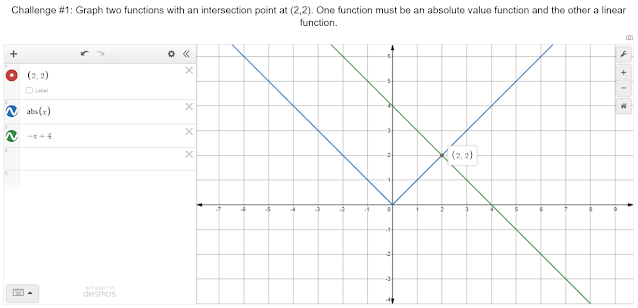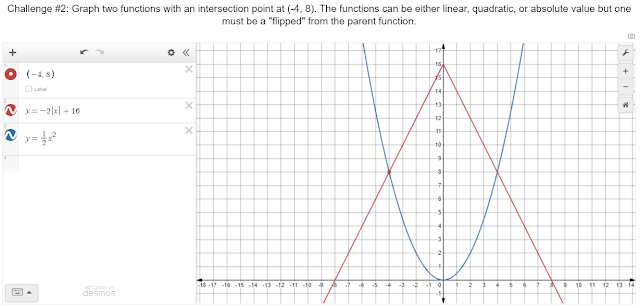Me: "Great job this chapter! You really did a fantastic job grasping some tough concepts. Way to persevere!"
Student: "Yeah. Thanks. I mean, I am glad I got an A on the test but it was kind of a waste of time. Even my dad said I am never going to use this stuff."
Me: "What do you mean?" Holds breath... knowing where this is going...
Student: "Just like this stuff we learned is pointless, ya know?"
Me: "I don't think it's pointless. I would imagine that many other professionals who regularly use this type of mathematical thinking don't see it as pointless either. Do you want to discuss applications of any of the concepts we learned about this chapter in more detail?"
Student: "No not really. But have a good day!"
Me: "You too!" (fakes a smile while dying on the inside)
This was one of my conversations with a student last month. It's been a few weeks and this conversation is still frustrating me. It's not really bugging me from a teacher stand point (I think I am just numb at this point to the question of "when am I ever going to use this?") but more so from a new parent perspective.
This student's parent said "You're never going to use this". Six terrible, dangerous words. I would imagine that underneath those six words the child heard much more. For example:
"You're never going to pursue an advanced STEM degree where this type of thinking and knowledge is needed."
"You're not the type of person who is going to find value in these complex problem solving skills."
"You have limits and boundaries to what you are capable of and it does not include advanced mathematics."
"I know more about what you will and will not want to study some day than you do and I am telling you what you can or cannot do."
I taught for almost ten years before becoming a parent. During that decade I tried really hard to never judge anyone's parenting. How do I know what it's like? Sure, research says xyz about child psychology and building confidence and blah blah blah but I have never truly been able to view education through the eyes of a parent.
Until now. Granted, I am only 18 months in. I am far from an expert here. But I hope that my daughter never feels like there are limitations on what she can accomplish. I hope that I always choose to speak to her and about her current and future educational experiences with genuine curiosity and excitement for the content she is learning, whether I find it useful or not. I hope that I never make comments like that parent made.
I don't really care what the content is. Ceramics? Shakespeare? The water cycle? Dividing fractions? The complex structure of the human heart? Making paper snowflakes? All learning has value. All content has it's place and time in a child's development. I hope I never squash her desire to learn for learning sake. Not everything taught in school has to be relevant to the "real world" or the perception of what the real world is or is not. Not everything taught in school has to have explicit purpose some day for all students. But the ability to learn, to problem solve, and to acquire new passions and interests should be celebrated and encouraged every day.
And it is for this reason that I want to say...







































